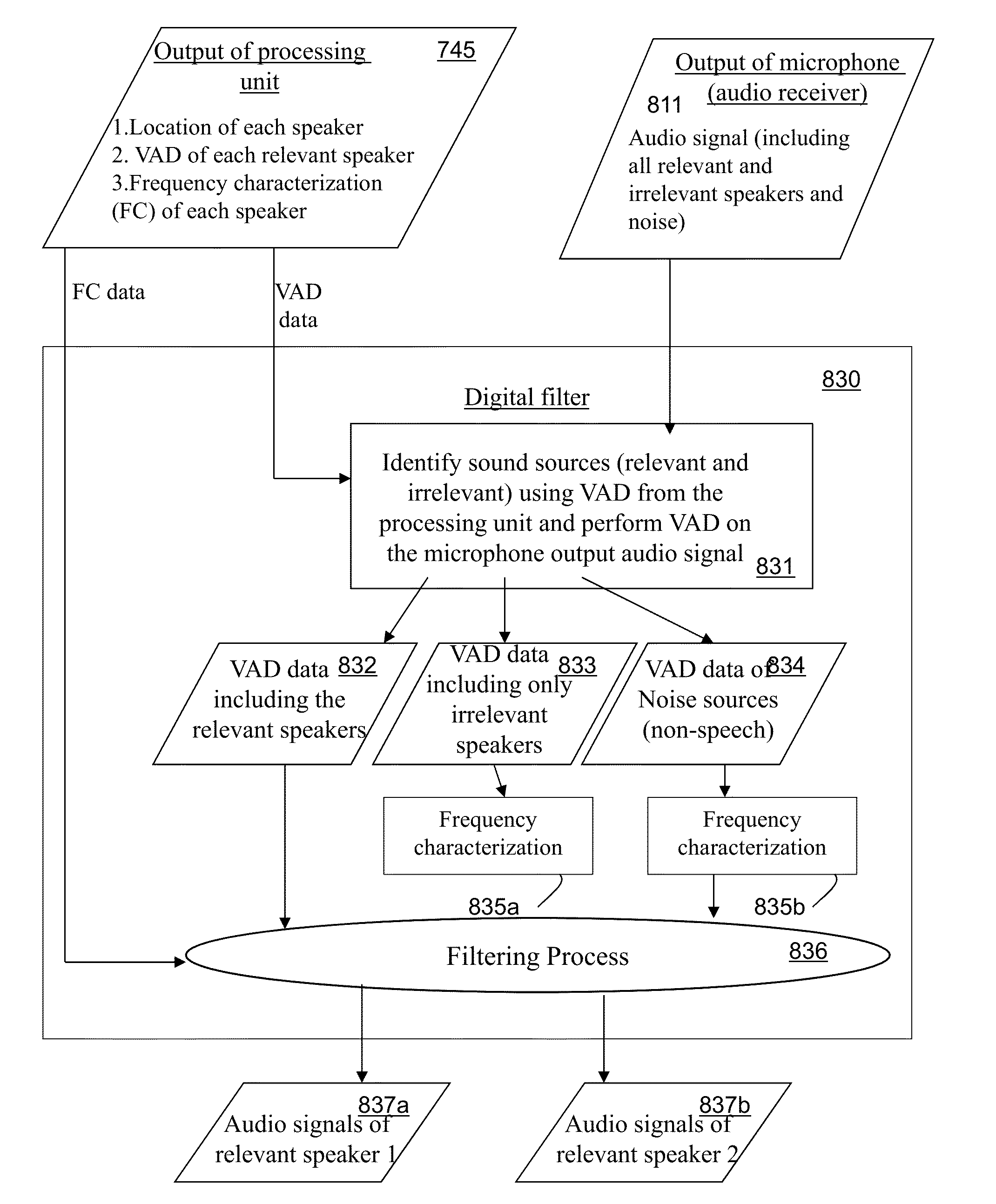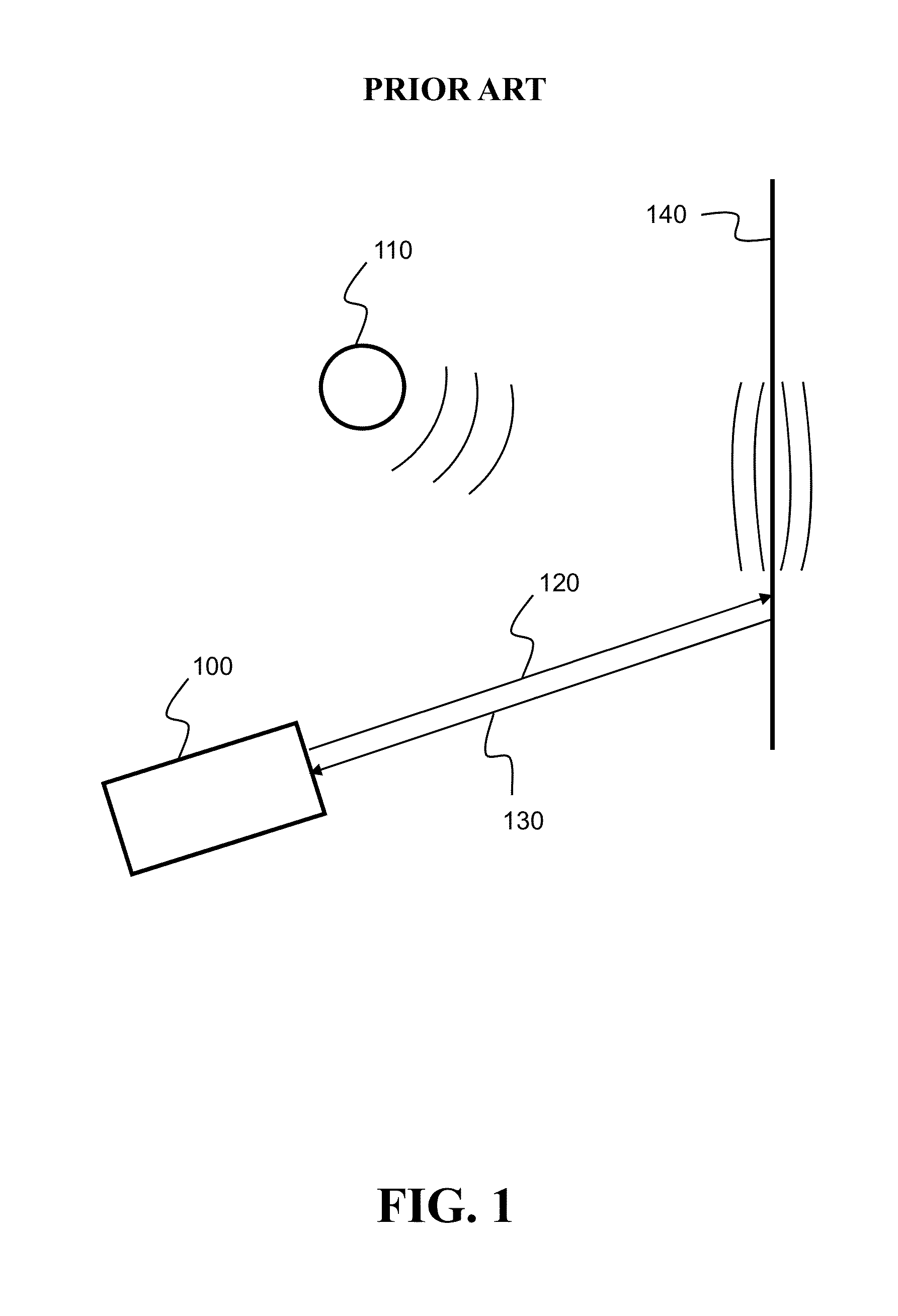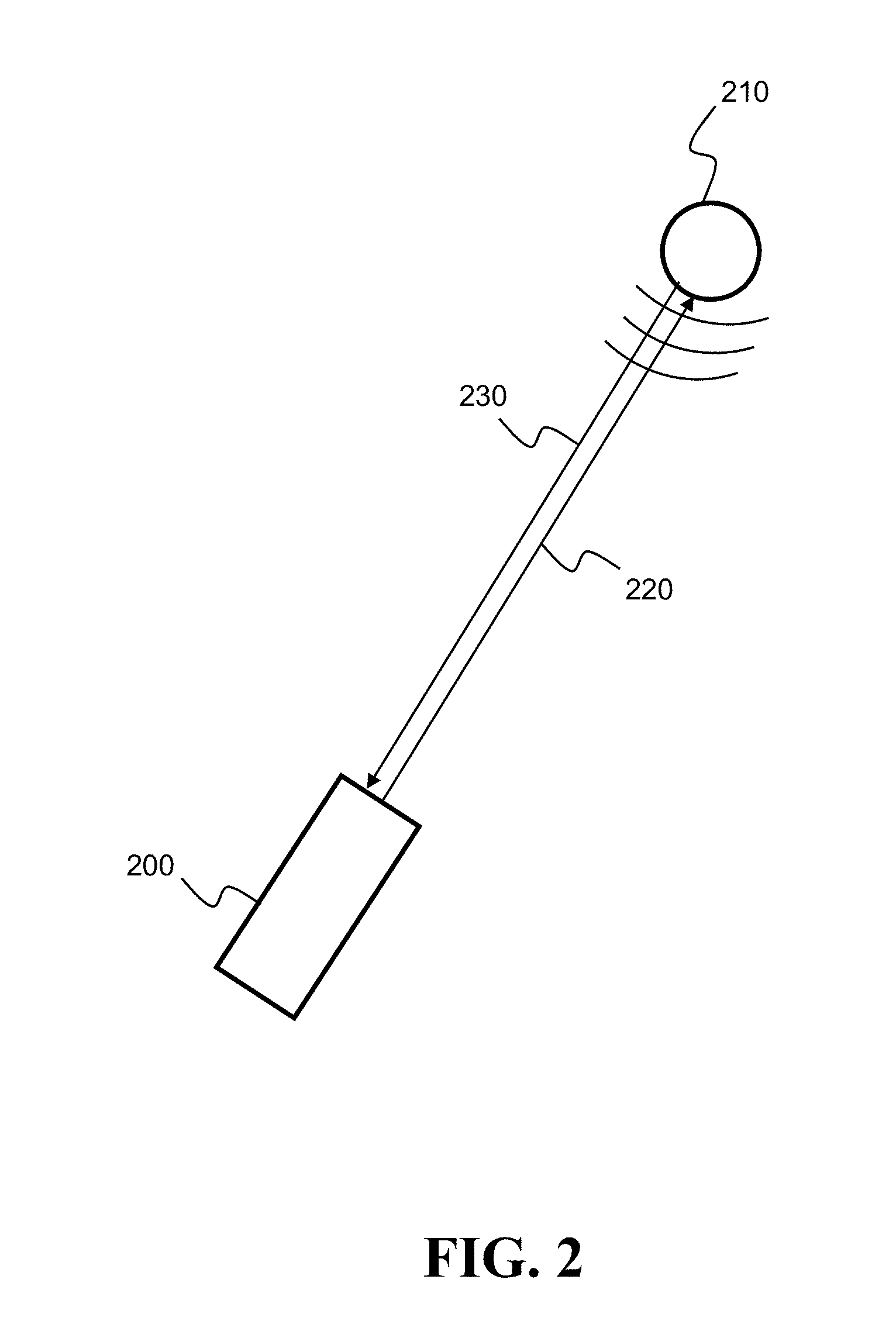Sound sources separation and monitoring using directional coherent electromagnetic waves
a technology of electromagnetic waves and sound sources, applied in the field of coherent electromagnetic waves, can solve the problems of reducing the quality of sound sensing, poor sound source separation ability, and performing using time-consuming and not always cost-effective digital signal processing (dsp) techniques, and achieve the effect of eliminating the noise componen
- Summary
- Abstract
- Description
- Claims
- Application Information
AI Technical Summary
Benefits of technology
Problems solved by technology
Method used
Image
Examples
Embodiment Construction
[0038]FIG. 2 shows a schematic diagram of the operational environment according to the present invention. A remote sound sensing apparatus 200 generates an outgoing coherent electromagnetic waves beam 220 that is pointed directly on a vibrations generating sound source 210. Upon hitting the vibrations generating sound source 210, the outgoing coherent electromagnetic waves beam 220 is reflected and returns, with modified physical properties, as a reflected coherent electromagnetic waves beam 230, to the remote sound sensing apparatus 200. When directing the beam at the sound producing source the vast majority of the detected vibrations are related to the sound source. Since the vast majority of the sound producing vibrations related to a sound source are detected, a high degree of separation between the sound source and the ambient is thus achieved. This is due to the fact that the beam is pointed directly at the vibrations producing sound source.
[0039]According to some embodiments ...
PUM
 Login to View More
Login to View More Abstract
Description
Claims
Application Information
 Login to View More
Login to View More - R&D
- Intellectual Property
- Life Sciences
- Materials
- Tech Scout
- Unparalleled Data Quality
- Higher Quality Content
- 60% Fewer Hallucinations
Browse by: Latest US Patents, China's latest patents, Technical Efficacy Thesaurus, Application Domain, Technology Topic, Popular Technical Reports.
© 2025 PatSnap. All rights reserved.Legal|Privacy policy|Modern Slavery Act Transparency Statement|Sitemap|About US| Contact US: help@patsnap.com



